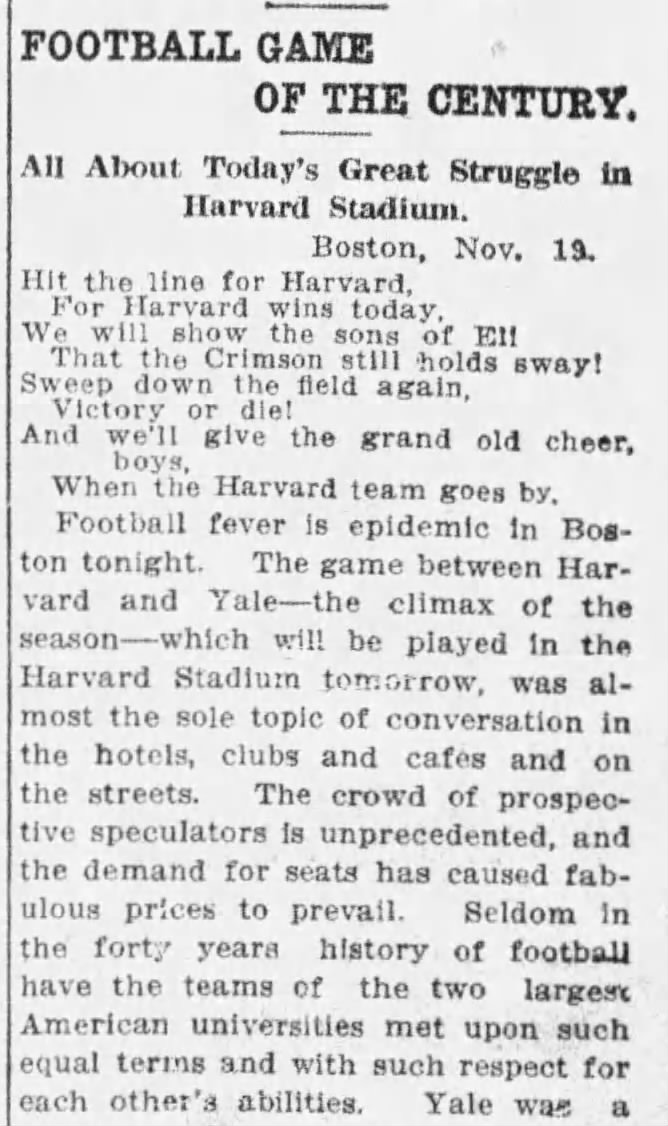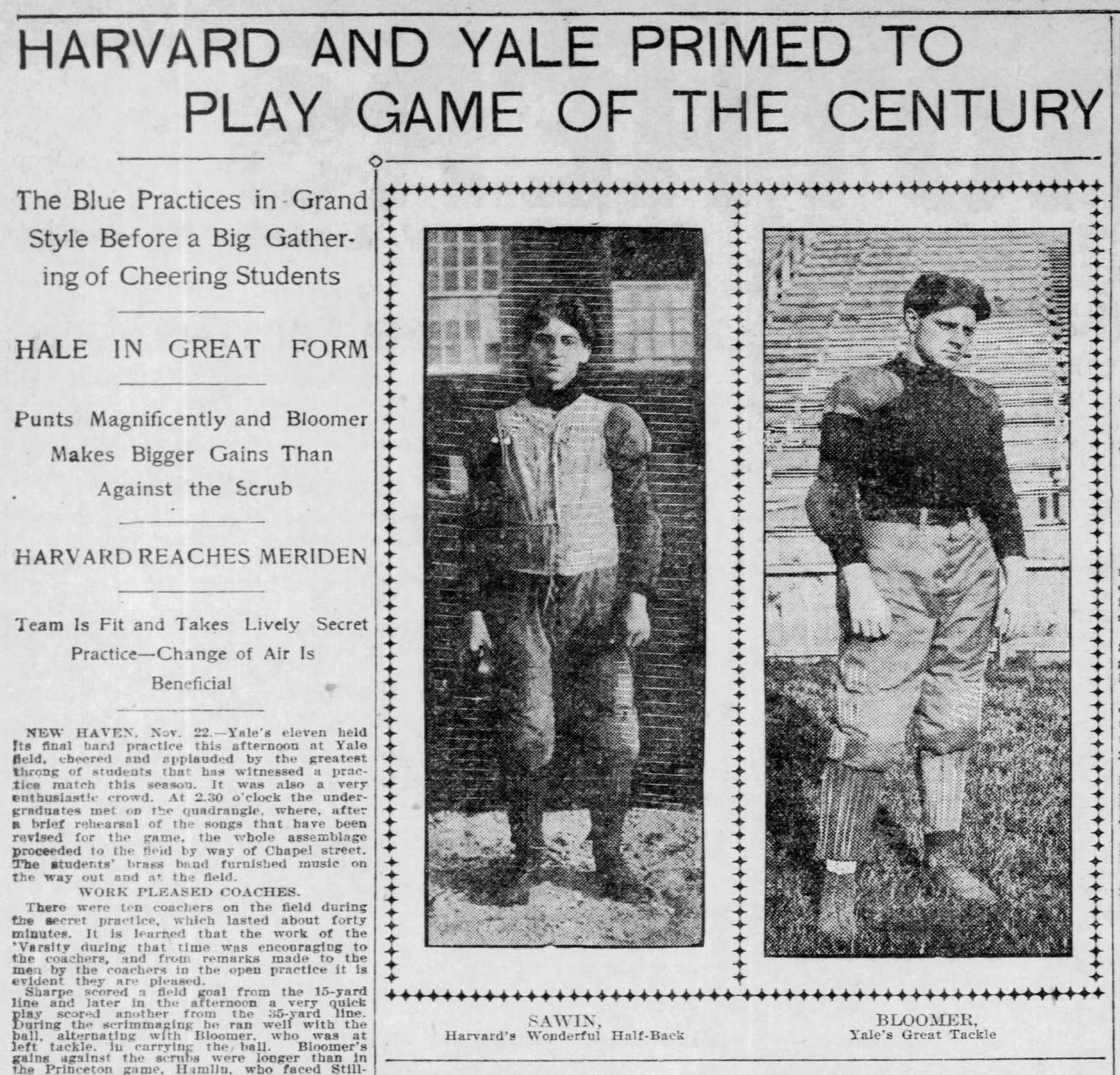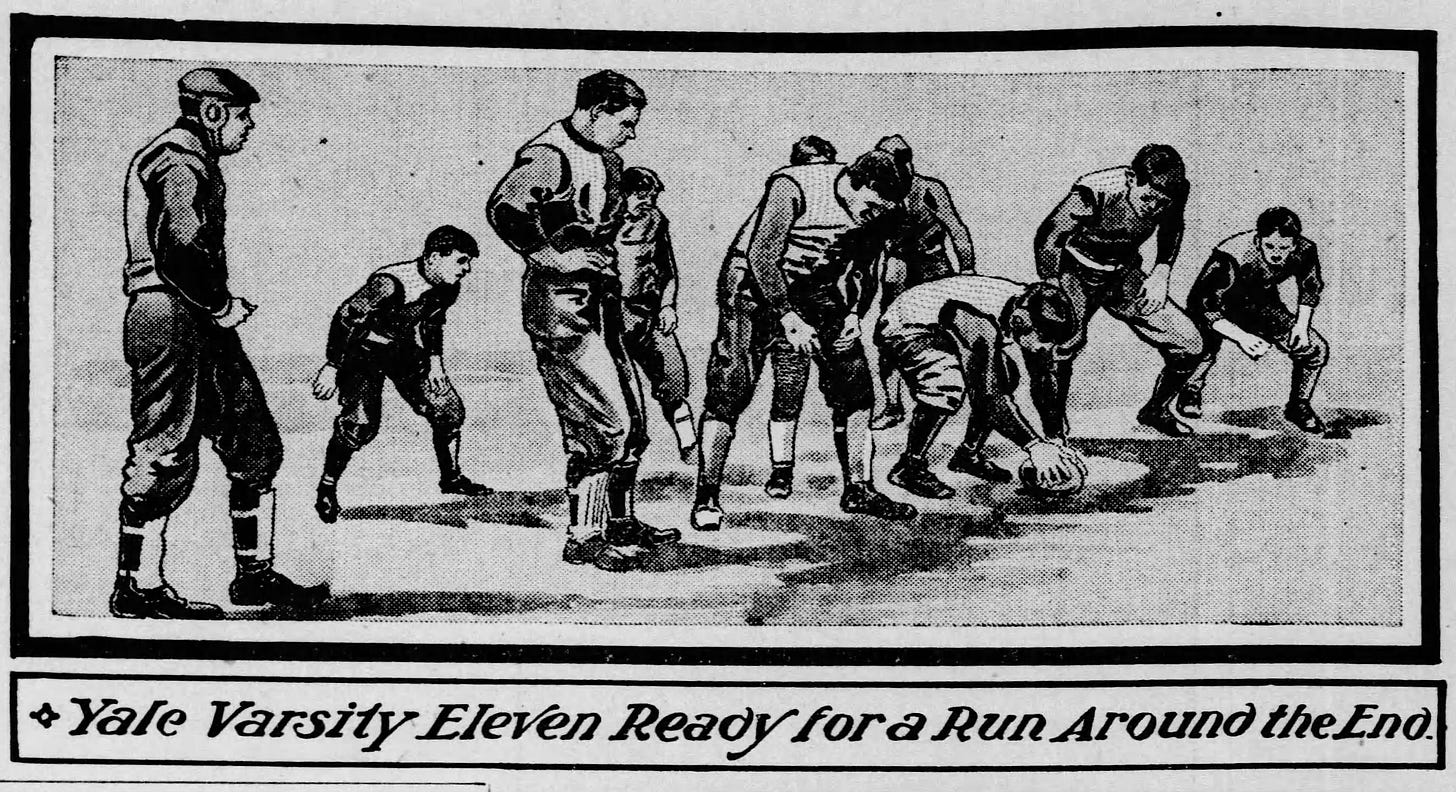Hyperbole and the Game of the Century
This is article #24 in a series covering the origins of football’s terminology. All are available under the Terminology tab above. My book, Hut! Hut! Hike! describes the emergence of more than 400 football terms.
A "game of the century" is a huge matchup that football fans nationwide anticipate, watch, and look back upon at levels, unlike your run-of-the-mill big game. While few agree on the criteria for what constitutes a game of the century (GOTC), they have proven popular.
Wikipedia tells us that 18 games have achieved GOTC status in the last 88 seasons, or slightly more than once every five years rather than once per century. Here are their GOTCs:
1935 Notre Dame vs. Ohio State
1935 SMU vs. TCU
1945 Army vs. Navy
1946 Army vs. Notre Dame
1966 Notre Dame vs. Michigan State
1967 UCLA vs. USC
1969 Texas vs. Arkansas
1971 Nebraska vs. Oklahoma
1986 Miami (FL) vs. Penn State
1991 Miami (FL) vs. Florida State
1993 Florida State vs. Notre Dame
2005 Texas vs. USC
2006 Michigan vs. Ohio State
2009 Florida vs. Alabama
2011 LSU vs. Alabama
2019 LSU vs. Alabama
Looking at the bottom of the list, we are not a quarter of the way into the 21st century, and we've already had six GOTCs. On the other hand, Wiki's list does not include any games from the 19th Century -a poor century for GOTCs- and the drought continuing through 1934. Then, in 1935, we packed two centuries' worth of GOTCs into one year.
How do we explain this strange pattern of GOTCness? Were the folks watching old-time football so backward that they could engage in hyperbole? Were they unwilling to pull their games up by their bootstraps to earn GOTCness? An alternate explanation is recency bias on our part. Could we be unable to see pre-1935 games as GOTCs, or do we ignore games our ancestors considered GOTCs?
While I did not conduct an exhaustive search for pre-1935 games referred to as GOTCs in their day, I searched enough to confirm the idea and term existed before 1935. For example, here's a headline from November 1909 that ran the day before the Harvard-Yale game.
Even better, here's one from 1900, when the 20th Century was less than one year old when they declared the next day's battle to be the GOTC.
Also, Yale walloped Harvard 28-0 the next day, so they likely did not consider the contest a GOTC after the fact, but at least some of them did so in advance. (The illustration below suggests Yale won with only ten players on the field, so they must have been a good team.)
As for GOTCs in the 1800s, I looked but did not find individual football games that earned the distinction, though the game of football itself was described as the GOTC compared to baseball or prizefighting. Likewise, advertisements for a few board games positioned them as the GOTC, but individual football games were not called GOTCs until 1900.
In the end, the headlines tell us the folks at the beginning of the 20th Century were as willing as we are to see their games and the stars as the greatest ever. They also had fewer games competing for the title of GOTC, so despite their games being left off the list by 21st Century writers, those claiming GOTC status in the early 1900s had better odds of being accurate than we do.
Football Archaeology is reader-supported. Click here to buy one of my books or otherwise support the site.




